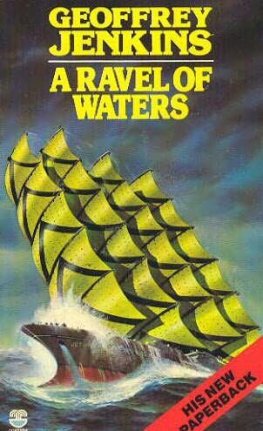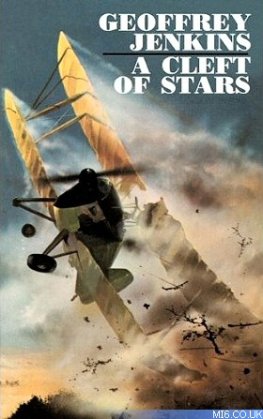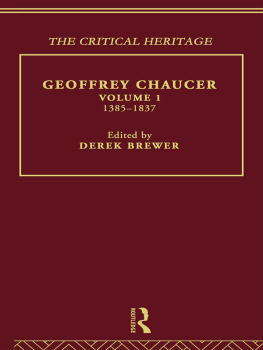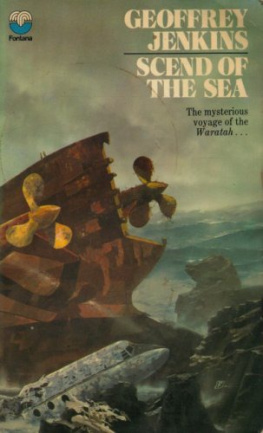Geoffrey Jenkins - A grue of Ice
Here you can read online Geoffrey Jenkins - A grue of Ice full text of the book (entire story) in english for free. Download pdf and epub, get meaning, cover and reviews about this ebook. genre: Adventure. Description of the work, (preface) as well as reviews are available. Best literature library LitArk.com created for fans of good reading and offers a wide selection of genres:
Romance novel
Science fiction
Adventure
Detective
Science
History
Home and family
Prose
Art
Politics
Computer
Non-fiction
Religion
Business
Children
Humor
Choose a favorite category and find really read worthwhile books. Enjoy immersion in the world of imagination, feel the emotions of the characters or learn something new for yourself, make an fascinating discovery.

- Book:A grue of Ice
- Author:
- Genre:
- Rating:4 / 5
- Favourites:Add to favourites
- Your mark:
- 80
- 1
- 2
- 3
- 4
- 5
A grue of Ice: summary, description and annotation
We offer to read an annotation, description, summary or preface (depends on what the author of the book "A grue of Ice" wrote himself). If you haven't found the necessary information about the book — write in the comments, we will try to find it.
A grue of Ice — read online for free the complete book (whole text) full work
Below is the text of the book, divided by pages. System saving the place of the last page read, allows you to conveniently read the book "A grue of Ice" online for free, without having to search again every time where you left off. Put a bookmark, and you can go to the page where you finished reading at any time.
Font size:
Interval:
Bookmark:
Geoffrey Jenkins
A grue of Ice
1. The Albatross' Foot
" Drake Passage!"
I shook my head. Sailhardy was wrong. The thin, sharp stiletto of wind did not even ruffle the surface of the sea, it was slight. It was there, though. Sailhardy unlashed the mainsail's crude fastening. His hands were as rough as the knotted wood of the whaleboat's ribs. The boom carrying the sail slatted untidily. Way dropped off the deep, thirty-foot craft. She settled into her own reflection, yellow to yellow, blue to blue white to white. The islanders' garish sense of paint did nothing to conceal the sweet lines of the boat.
" South Shetlands," I countered.
Sailhardy didn't seem to hear me. He crooked a knee into the starboard forward rowlock. His action was unstudied, but there was a pointer's tenseness in it. I found another lead sinker for my special net among the long oars on the gratings. I knotted it lazily to a hundred-fathom line coiled on the bottomboards. Sailhardy's taut caution seemed out of place. I suppose fishermen are fishermen the world over, and my enjoyment in sending down my special nylon net to the depths of the ocean here on the fringes of the Southern Ice Continent for tiny plankton sea-creatures was as keen as it would have been in casting a fly six thousand miles away in Scotland. Sailhardy's lean shoulders shrugged under the faded red-orange windbreaker. His was the inborn alertness which made a man survive the sea-enemy, in these Antarctic waters more pitiless than anywhere else in the world. I was fishing, and it lulled me out of feeling that I was a man with a mission, let alone a scientist of the Royal Society of London.
" No, Bruce" he began.
I grinned at him as I dropped the heavy lead sinker over the side. The use of my Christian name still came a little hard off his tongue. After all, a lower-deck man does not call his captain by his Christian name. Not in the Royal Navy anyway. For two long, bitter years Sailhardy had been my leading torpedoman aboard H.M.S. Scott during the war. My job, as commander of His Majesty's South Shetlands Naval
Force, based on Deception Island, five hundred miles south of the southernmost tip of South America, had been to guard the sea passage between the Pacific Ocean and the South
Atlantic-the Drake Passage. It was the favourite route for German-armed merchant raiders, U-boats and Japanese submarines. They chose it because its fog-bound waters, continually lashed by gales, made it impossible to find a ship, even if you were within five miles of it. I knew the Drake Passage -only too well. The name sang in my mind like a gale through the futtock shrouds of an old clipper. It was maybe fifteen years since I had last seen its wild waters from the bridge of my small destroyer, but its screaming hell-fiends of wind and ice still bit into my memory. Sailhardy's tenseness this quiet, sunny afternoon on the fringes of the wild ocean we had once guarded was a living memory, too, of the inborn sea-vigilance of a Tristan islander. Man against the sea. In these Southern waters we both knew that the cards were stacked against the man.
I assumed my captain's voice. " Leading Torpedoman Sailhardy.. ." I couldn't help myself. I grinned at him again. His eyes were as far away as the horizon. " Relax," I said: " You look as if you were trying to see all the way to the South Pole."
" I wish I could," he said. " Then I'd know what sort of a gale is due to hit us."
I gestured towards the quiet scene. The big island lay some miles astern of the boat, and two smaller ones were visible above the horizon ahead. They made a triangle with unequal sides roughly ten and twenty miles long. The big island was closest to us.
" Nothing is going to hit us," I said lazily. " Nothing at all." Sailhardy glanced back at the big island, his home, as if to take strength from its sombre cliffs.
" The watch never goes below on Tristan da Cunha," he said with a curious intonation. " That is why we islanders have survived. There's a great storm behind this little wind." I, too, turned and looked at the near-by island. A giant flock of Cape pigeons made a white socket of light against its towering throne of darkness; matching their whiteness, a crown of snow rimmed the island's 7,000-foot extinct volcano: Tristan da Cunha, the loneliest inhabited island in the world. It lies, with its two tiny neighbours whose summits I could just see ahead, midway between Africa and South America on a line between Cape Town and
Montevideo, and an almost equal distance of two thousand miles from the nearest tip of the Antarctic ice continent. Before and immediately after Napoleon's time Tristan da Cunha was an important base for British and American sealing ships making for the hunting-grounds of the frozen South. Its first three permanent settlers, half a century before the Civil War, were, in fact, American sailors. During Napoleon's exile on St. Helena, 1,500 miles to the north-east, the British stationed a garrison on Tristan, and the remains of that garrison, plus the Americans, formed the stock from which the island's present inhabitants have sprung. For nearly a century and a half, the island remained cut off from the world, except for a rare visiting ship.
During the war I had brought to Tristan from Cape Town a force of Royal Navy and South African Air Force men to man a radio station. From Tristan I had taken my small task force under H.M.S. Scott two thousand miles to the south and had based in on Deception Island, a flooded volcanic crater on the edge of the ice continent. The two neighbours of Tristan I could see ahead now were Nightingale and Inaccessible Islands. In every direction beyond them, for thousands of square miles, lay completely empty sea.
The Cape pigeons, in splendid white resilience, made for the haven of Tristan da Cunha. Sailhardy unhooked the triangle of foresail forward of the mast, as if to emphasise the danger he feared.
I could not take his forebodings seriously. It was all too peaceful. I was to learn-soon-how much of my ice-lore I had lost.
" I'm a scientist," I replied easily. " I've got a posh title to prove it-holder of the Royal Society's Travelling Studentship in Oceanography and Limnology. You do the sailing."
He caught my mood, and grinned back. " I remember I was nearly sick with fright when you took me aboard H.M.S.
Scott from Tristan during the war. Naval captains were God to me."
" Who ever told you to address me as professor-captain that day?" I laughed.
" One of the midshipmen," he said. " He told me the captain had been a professor of science in peace-time before commanding the ship." He grinned at his own discomfiture. " So you had to be professor-captain."
" I wasn't a professor," I said. " Never have been. I'd merely made special studies in oceanography. I was too young anyway to be a professor."
" You were twenty-seven then," he said, " that makes you fortytwo now."
I remembered his hesitation a few minutes before about my Christian name. " I'll bet that the day you walked on to my bridge you never thought you would be calling me Bruce," I said.
" Bruce." He paused a moment, and then went on: " You would have remained Captain Wetherby to me all my life if it hadn't been for what you said that day you came back to Tristan after the war. That's twelve years ago now. We
Tristan islanders live a hard life. We live off the sea, except for a couple of acres of potato patches and some apple trees, and maybe a hundred cattle and sheep. You had the world at your feet after the war. You'd had a brilliant war-time career, and a brilliant university career before that. I remember how you stepped off the freighter out in the roadstead. Mine was the first boat there. I didn't know you were coming. ' Captain Wetherby!' I said. I'll never forget your reply. ' No, Sailhardy. This is Bruce. Captain Wetherby went down with the raider. I've come back to the things I want Sailhardy, Tristan, the Southern Ocean.' "
Font size:
Interval:
Bookmark:
Similar books «A grue of Ice»
Look at similar books to A grue of Ice. We have selected literature similar in name and meaning in the hope of providing readers with more options to find new, interesting, not yet read works.
Discussion, reviews of the book A grue of Ice and just readers' own opinions. Leave your comments, write what you think about the work, its meaning or the main characters. Specify what exactly you liked and what you didn't like, and why you think so.






